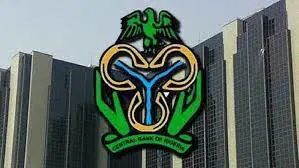
Nigeria’s banking sector is undergoing one of the most defining moments in its history—and the timing couldn’t be more crucial. Despite economic headwinds, Nigerian banks are proving resilient. In fact, the Central Bank of Nigeria (CBN) has officially declared them safe, sound, and on track to meet the ambitious recapitalization targets it set earlier this year.
Already, eight banks have met the new capital requirements ahead of the March 31, 2026 deadline. This isn’t just a financial milestone — it’s a strategic move to align the financial system with Nigeria’s goal of becoming a $1 trillion economy by 2030.
The big idea? A stronger banking system equals a stronger economy. According to CBN Governor Olayemi Cardoso, the ongoing recapitalisation drive is not just about meeting numbers on paper. It’s about preparing banks to support large-scale economic transformation—from MSMEs to infrastructure and digital finance.
This effort is backed by a robust framework. The CBN has tightened supervision, imposed stricter penalties (₦15 billion in fines recently), and continues to monitor risks closely. It’s also redefining what counts as capital — only paid-up share capital and share premium now qualify — pushing banks to raise fresh funds rather than relying on old reserves.
Beyond commercial banks, the CBN is also strengthening microfinance institutions, mortgage banks, and non-interest banks. The goal is clear: increase access to credit and bring financial services to the underserved, even in remote areas.
Industry leaders like UBA’s Group MD, Oliver Alawuba, agree that this is not just regulation—it’s a vision. One that prepares Nigeria’s banks to compete globally and fuel sectors like fintech, green energy, and industrialization.
This isn’t just a recapitalisation effort. It’s a bold financial reset — one designed to strengthen public trust, unlock new capital, and give Nigerian banks the firepower they need to power the next chapter of economic growth.







